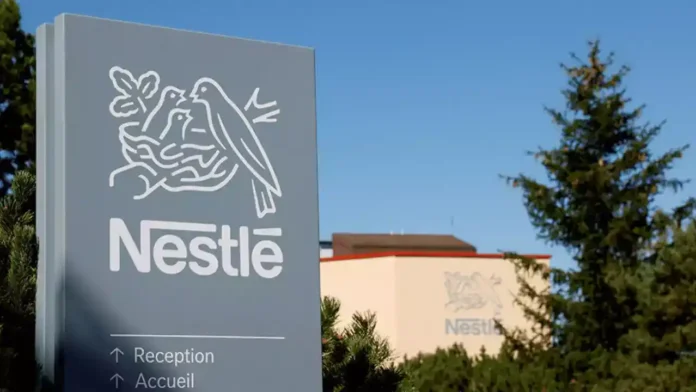Food safety regulator Food Safety and Standards Authority of India (FSSAI) has launched an investigation into the sugar content controversy surrounding Nestle‘s Cerelac products, as reported by ET NOW, citing sources familiar with the matter.
FSSAI has reassured its dedication to conducting a comprehensive investigation into the allegations. Should Nestle be found responsible, the regulatory authority has pledged to enforce strict measures against the company. Sources indicate that as part of the inquiry, a committee will be established to thoroughly examine the case details.
As the investigation progresses, stakeholders will closely monitor the proceedings, eagerly anticipating the results and the potential impact on Nestle.
According to research conducted by “Public Eye,” a Swiss investigative organisation, with IBFAN (International Baby Food Action Network), Nestle incorporates sugar to infant milk marketed in less affluent countries such as India, but not in its key markets such as Europe or the United Kingdom. This information was discovered when samples of the company’s baby food products sold in Asia, Africa, & Latin America were sent to a Belgian laboratory for testing.
Continue Exploring: Nestle India responds to sugar concerns in baby food, highlights 30% reduction in added sugars over 5 years
In the profitable Indian market, which surpassed $250 million in sales in 2022, every variant of Cerelac baby cereal contains added sugar, averaging nearly 3 grams per portion. “Public Eye’s” recent investigation showed that Cerelac wheat-based cereals designed for six-month-old infants sold by Nestle in Germany, France, and the UK do not contain additional sugar. However, the same product contains over 5 grams per serving in Ethiopia and 6 grams in Thailand.
Meanwhile, the stock price of Nestle India has recently fallen below its 100-day Simple Moving Average, reaching INR 2526.2 at 9:30 am on Thursday. Today’s percentage change stands at -0.78%, with the 100-day SMA recorded at INR 2532.78. This movement suggests a possible change in the stock’s trend.
When presented with the findings, Nigel Rollins, a scientist at WHO, conveyed to “Public Eye” and IBFAN: ‘There’s a double standard here that can’t be justified.’ He went on to comment that the situation where Nestle avoids adding sugar to these products in Switzerland but readily includes it in economically disadvantaged areas ‘raises challenges both in terms of public health and ethics.’
As per the report, WHO warns that early exposure to sugar could lead to a long-term preference for sweetened foods, increasing the risk of obesity and chronic diseases. In 2022, WHO called for the elimination of added sugars and sweetening agents in foods meant for infants, urging the industry to proactively support public health goals by reformulating their products.
An interesting observation is that Nestle’s online platform, which offers advice on infant nutrition, clearly states: ‘It is recommended to avoid adding sugar when preparing meals for your infant or giving them sugary drinks. Some leading nutrition and healthcare experts suggest avoiding the introduction of fruit juices in the first year due to their naturally high sugar content. …Avoid juice blends or other mixed drinks containing added sweeteners. Always check the packaging.’ Unfortunately, this guidance seems irrelevant to the company’s own products sold in economically modest and middle-income countries.
Continue Exploring: Nestle shareholders push for healthier food sales amid concerns over nutritional impact
While Nestle did not address inquiries from Public Eye and IBFAN regarding the double standard, the company did assert that it has decreased the total amount of added sugars in its infant cereal portfolio worldwide by 11% over the past decade. Nestle also stated its commitment to “continuously reduce the level of added sugars without compromising on quality, safety, and taste.”
When reached for comment, a spokesperson for Nestle India stated, “Over the last 5 years, Nestle India has reduced added sugars by up to 30% in our infant cereals portfolio.” The spokesperson added, “We consistently evaluate our portfolio and strive to innovate and reformulate our products to further decrease the levels of added sugars while maintaining quality, safety, and taste.”





